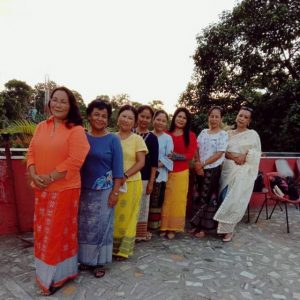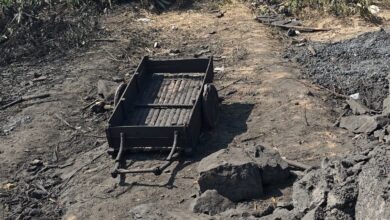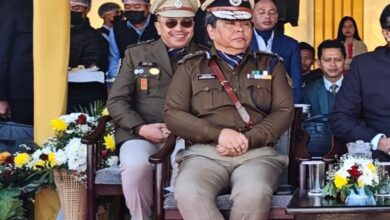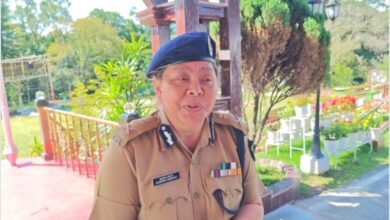Keeping tradition alive
A year-old Jakmatang Trust promotes Garo weaving, handicrafts

The pandemic last year was not a hurdle for a group of women, most of whom are teachers with a keen interest in weaving, to give shape to a three-year-old inchoate idea. They finally formed a platform, Jakmatang Trust, for women weavers and artisans in the villages of Garo Hills. The motive was not only to help these talented women in rural areas get economic independence but also to encourage the age-old art of weaving of dakmanda, or Garo wraparound.
“The popularity of the tradition of weaving has waned. So, our trust wanted to encourage more people to keep alive the tradition,” said Suzanne Ch Momin, a trained textile designer and assistant manager of the trust.
Based in Tura in West Garo Hills, the trust has brought together artisans from all the districts in the region. From West Garo Hills alone, there are over 800 weavers. “It was extremely challenging to connect with all the weavers in far-flung villages. But technology like WhatsApp helped us mobilise a large group of people. Whenever there would be relaxation in lockdown rules, we would hold meetings in small groups,” Momin, who is a high school teacher, told Sunday Monitor on phone.
The weavers in villages get their yarn from government yarn banks and once the products are ready, they deliver those to the core group of the trust. So far, the trust members have been able to collect the end products from villages in West Garo Hills.
The trust then advertise the products on social media to attract the attention of buyers.
Besides dakmanda, the trust encourages other traditional handicrafts like bamboo and cane jewellery and articles. Despite the ongoing pandemic, the six core members have managed to travel to a few villages to hold meetings with small groups of women artisans, sensitise them about the importance of traditional weaving and appoint master weavers for training young and enthusiastic weavers.

Jaynie Ningring N Sangma, the director of the trust, is a social worker and has been working with rural women for years now, informed Momin, adding, “All the core members have a keen interest in weaving and designing. Some are trained while others are self-taught. We have established Jakmatang Trust with the aim to promote and foster the culture and practices of the Garos. Weaving is an important part.”
The core group meets the artisans and weavers virtually on WhatsApp. “We have a group in Garobada, which is not far from Tura. We visit weavers there at times,” she said.
The rural groups weave dakmanda of various types, including ones with muga silk and in polyester. Prices vary accordingly. Tura has an encouraging market for high quality products.
The trust has a vision. The members want to promote the textile and handicrafts on e-commerce platforms in the long run though
“it would be a challenge to make the rural artisans understand the concept”. Jakmatang also wants to bring together all the artisans in Garo Hills under one umbrella.
Jakmatang is yet to get help from the state government but the members are hoping for financial support from the Art and Culture and the Weaving and Sericulture departments.
The pandemic has slowed down the pace of work and affected the wider market for handicrafts and traditional weaves. But Jakmatang members are confident of a flourishing future for the poor weavers in remote areas. “We are waiting for this situation to ease so that we can meet more talents in the obscure hamlets,” said Momin.
The trust members are also planning to approach the Education Department with the request to include weaving in the list of co-curricular activities in schools and colleges so that the tradition gains popularity among the youth.
Photos sourced





